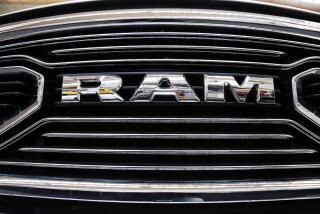17th Worker Pleads Guilty in Ingram Micro Tax Case
- Share via
LOS ANGELES — Another salesman at Ingram Micro Inc., where the IRS has targeted more than 300 salespeople for tax evasion, has pleaded guilty to failing to report bonuses as income.
In his plea agreement Monday, James A. Simonelli, 40, of San Clemente, admitted that he didn’t report $93,000 in incentive pay over four years.
Under the plea bargain, he also agreed to pay back taxes of $18,600 plus interest and a fraud penalty that amounts to 75% of the tax owed.
Simonelli was the 17th Ingram Micro employee from the company’s Santa Ana headquarters and its Buffalo, N.Y., regional center to plead guilty to criminal charges.
The Internal Revenue Service said it is seeking back taxes, interest and hefty civil penalties from about 200 Ingram employees in Santa Ana and more than 100 in Buffalo, where the audits began in early 1995. The investigation is one of the biggest tax cases involving employees at a single company.
Simonelli pleaded guilty in federal court in Los Angeles to one felony count of failing to report $33,000 in incentive pay for 1992. He admitted, though, that he failed to report a total of $93,000 from 1990 through 1993.
He is scheduled to be sentenced Dec. 8. In 15 other criminal cases, employees have agreed to pay back taxes, interest and penalties and have been placed on probation. Sentencing on the 16th employee is pending.
The Ingram cases focus on payments that manufacturers in various industries make to salespeople as part of product promotions. The bonuses are commonly called SPIFFs--special product incentive fund.
Manufacturers like Microsoft or Texas Instruments, for instance, give Ingram a block of money--a SPIFF--to be used to pay incentives to Ingram salespeople for placing orders for certain products with retail outlets such as CompUSA. Employees could get, say, $5 for each product sold.
Both Ingram and the IRS said the company did nothing wrong in passing the money through without deducting any taxes. Since the investigation began, however, Ingram began withholding taxes from the payments.





